
Electric vehicles have entered a new stage of large-scale industrialization, with an estimated ownership of over 100 million vehicles by 2030. The popularity of new energy vehicles is driving comprehensive electrification in transportation and a significant expansion of the energy storage industry, which is a crucial component of new energy. Achieving the peak of carbon emissions in transportation will compel a deep integration and coordinated development of battery carbon footprint and energy decarbonization.
More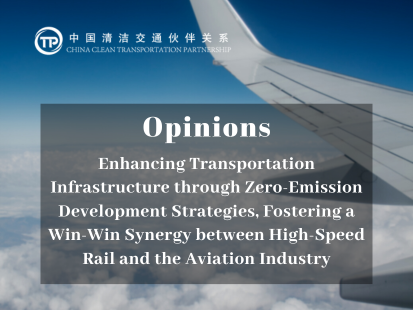
Amidst the pursuit of the concurrent objectives encompassing "carbon peak and carbon neutrality," high-quality development, and an enhanced quality of life, how will the landscape of demand and supply within high-speed rail and civil aviation passenger transport services transform? What implications and significance lie within the adjustments to the transportation framework? How can the sectors of high-speed rail and civil aviation foster a symbiotic relationship of robust cooperation and competition, ultimately leading to a "win-win" outcome? Given the array of queries outlined above, the assembled experts engaged in profound and comprehensive deliberations during the 22nd CCTP Salon, delving into these multifaceted subjects.
More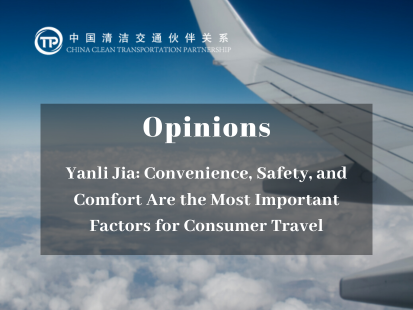
Exploring the passenger demographics willing to make the shift from air travel to high-speed rail, and understanding the motivations driving this change, were the central inquiries under consideration. Addressing these questions, the 22nd CCTP Seminar held on the morning of July 25th featured the theme "A New Approach to Aviation Emission Reduction: Bridging the Gap between Short- and Medium-Haul Air Travel and High-Speed Rail." At this seminar, Yanli Jia, Senior Research Director at Beijing Ipsos Market Consulting Co., Ltd., delivered an insightful presentation on the topic of "Consumer Inclination to Substitute a Portion of Air Travel with High-Speed Rail." Her talk encompassed an exploration of consumer travel behaviors, the willingness to transition from air to high-speed rail, and the key factors influencing this transition, approached through both the lenses of business travel and personal leisure.
More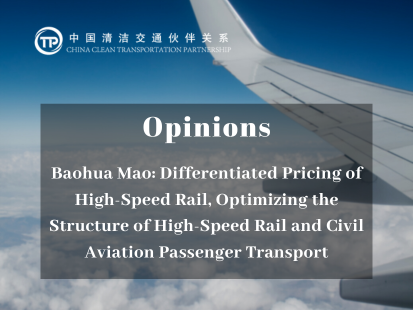
In the morning of July 25th, the 22nd CCTP Salon Seminar titled "A New Approach to Aviation Emission Reduction: Exploring Short- and Medium-Haul Passenger Aviation's Interaction with High-Speed Rail" was successfully conducted by CCTP. The distinguished presence of Baohua Mao, Executive Director and Professor at the School of Traffic and Transportation, Beijing JiaoTong University, graced the seminar, wherein he also presented a keynote speech. The focus of his discourse was the "Study on Optimization Strategy of High-Speed Rail and Civil Aviation Travel Structure under Dual-Carbon Targets."
More
With current subsidies phased out, the preferential purchase tax for new energy vehicles and the differentiated license plate policies in major cities like Beijing, Shanghai, Guangzhou, and Shenzhen play a crucial role in reducing the green premium for these vehicles. How long should the preferential purchase tax policy be in effect? When should it be phased out, and what preparations need to be made for the exit? These questions merit in-depth exploration.
More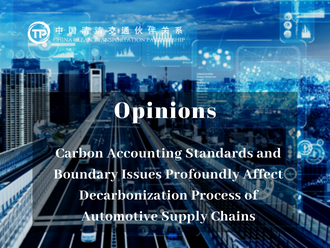
On the afternoon of February 21, 2023, Agora Verkehrswende, the German International Cooperation Agency (GIZ), and the China Clean Transportation Partnership (CCTP) jointly hosted a salon seminar on reducing carbon emissions in the automotive industry supply chain. Nearly 50 experts, scholars, and industry practitioners from 17 institutions participated in the seminar and had lively discussions on topics such as how to promote decarbonization of enterprises and products in the Chinese and German automotive industries' supply chains, the development of carbon reduction in the two countries' electric vehicle industries' supply chains, key links in carbon reduction, and how Sino-German cooperation can ensure the safety and sustainability of the automotive industry supply chain.
More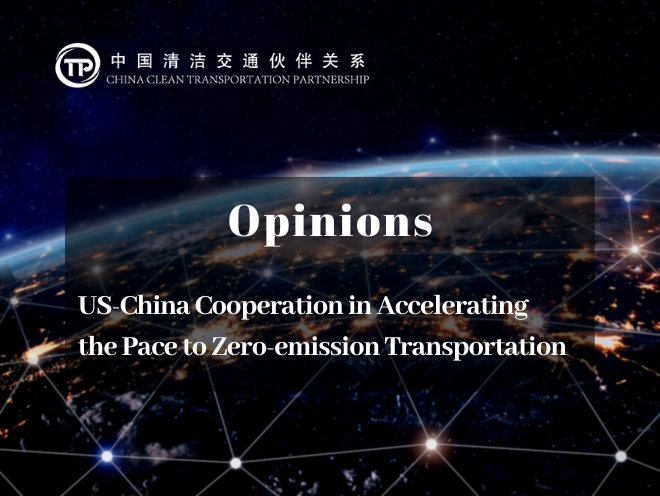
On October 19, 2022, CCTP successfully held its 20th workshop on "Zero Emission Transport in the US and China: Dynamics and Perspectives under New Context." During the workshop, experts from both domestic and international regions discussed policies related to the transition to zero-emissions transportation in the US, and its impact on the decarbonization process in China and the US. They also highlighted the importance of international cooperation in accelerating the deep decarbonization process in China and the US, as well as in the global transportation industry.
More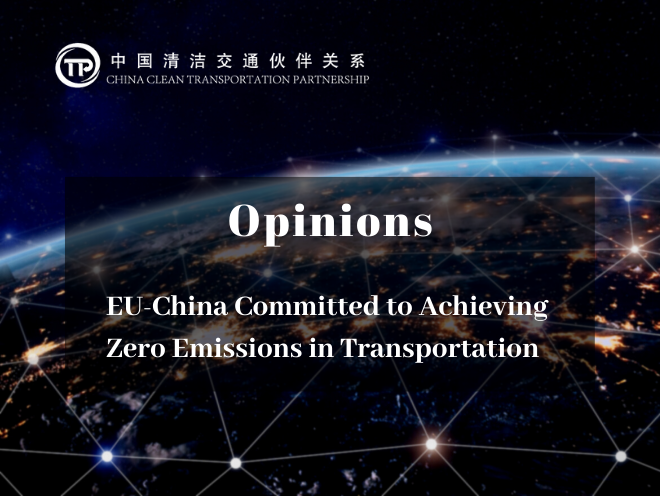
Opinions | Under the New Context, China and Europe Should be More Determined to Cooperate to Promote Zero-emission TransportationOn October 17, 2022, CCTP successfully held its 20th workshop on "Zero Emission Transport in the EU and China: Dynamics and Perspectives under New Context." Experts from both domestic and international regions discussed the impact of the changing global situation on energy development and the importance of international cooperation in accelerating emission reduction in the transportation sector.
More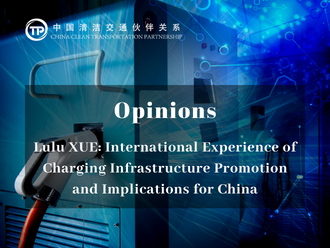
Lulu XUE, Director of the Transportation Program at the World Resources Institute (WRI), has stated that while China's charging industry has a high level of marketization, there is a risk of market failure due to excessive competition for market share if the industry is not regulated.
More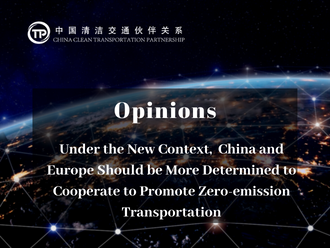
On October 17, 2022, CCTP successfully held its 20th workshop on "Zero Emission Transport in the EU and China: Dynamics and Perspectives under New Context." Experts from both domestic and international regions discussed the impact of the changing global situation on energy development and the importance of international cooperation in accelerating emission reduction in the transportation sector.
MoreCCTP is a non-governmental, non-profit, and voluntary platform, focusing on policy and technological innovations, summarizing and disseminating national and global practices for a net-zero transportation sector.